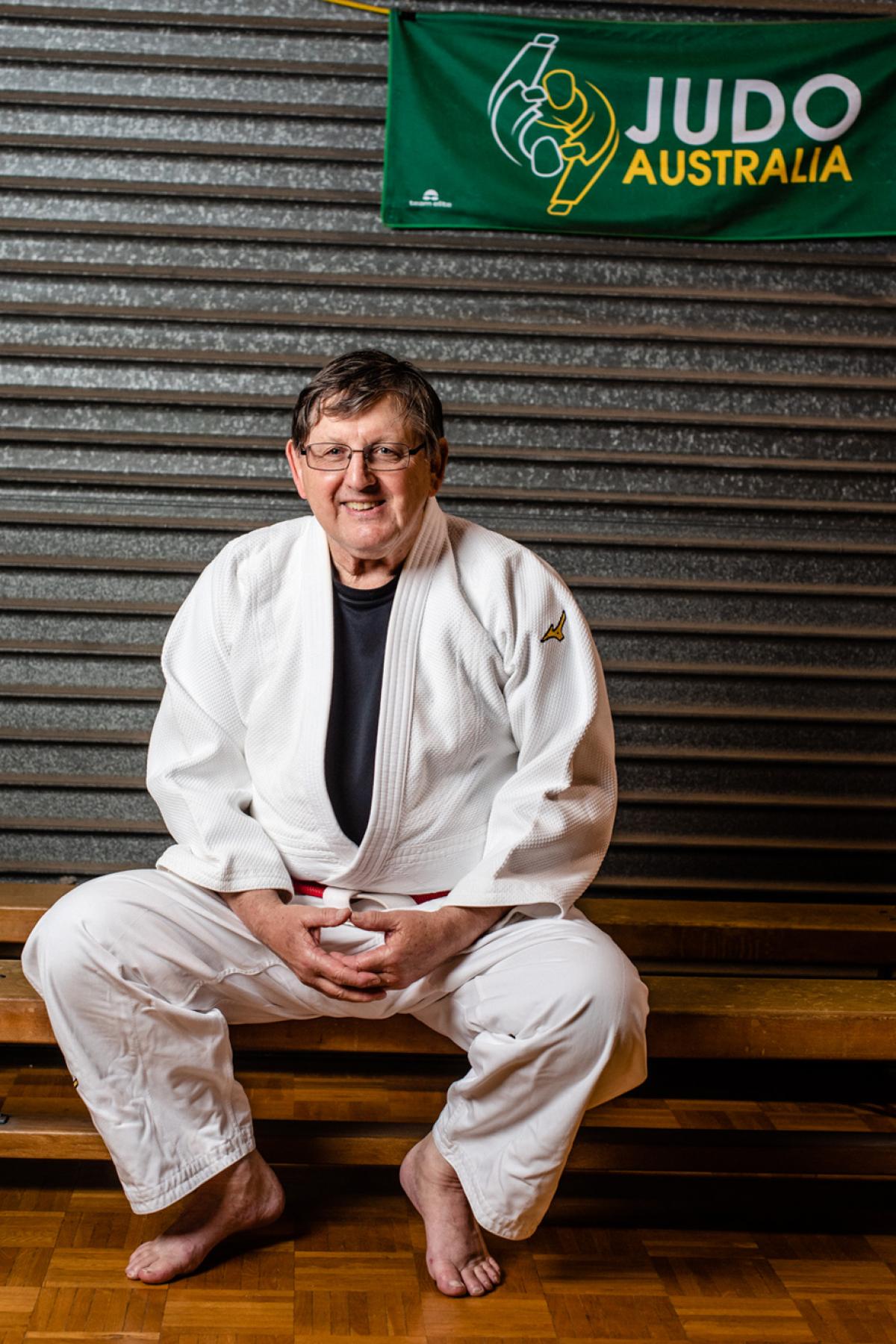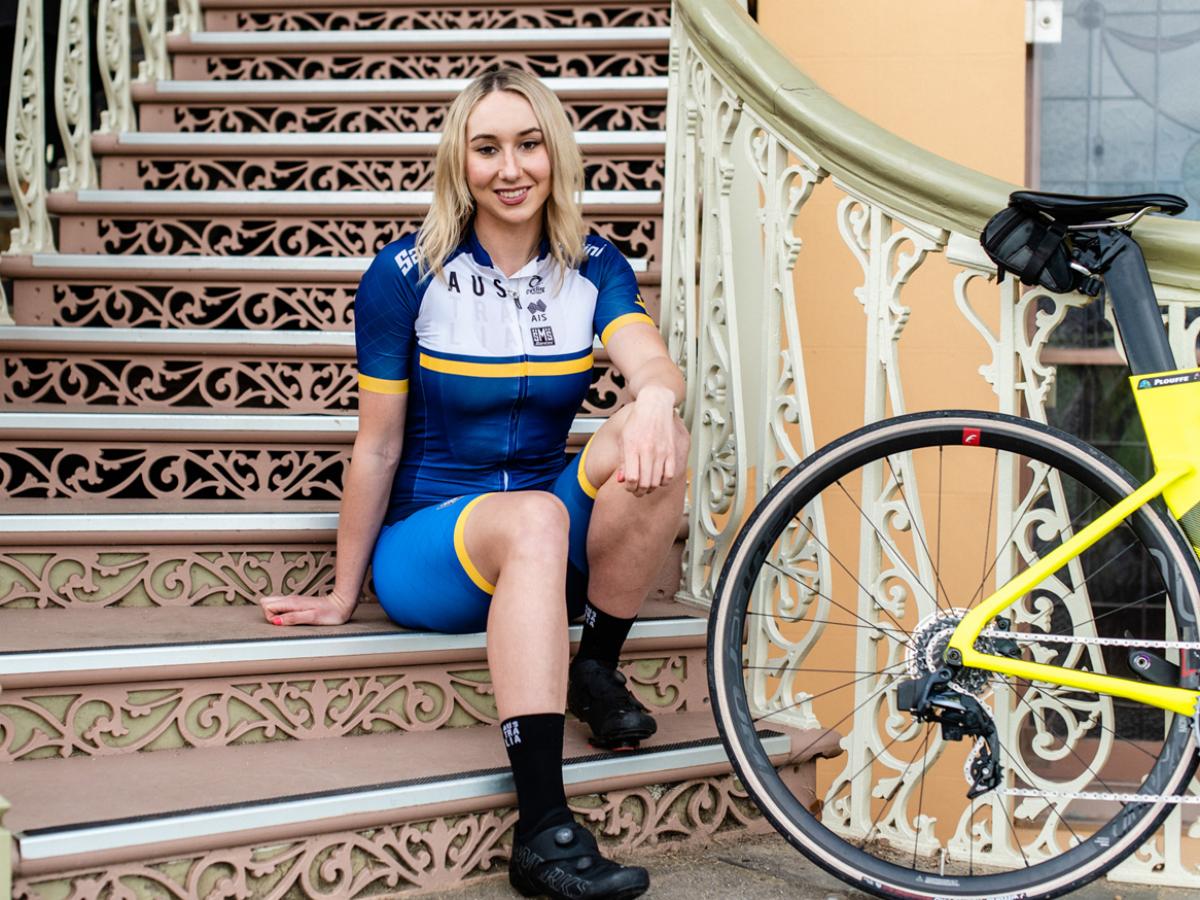Then and Now: Adelaide University Sport
Communities, camaraderie and friendships forged through university sport.

Michael Headland
Bachelor of Sciences (Honours) 1972 Diploma of Education 1976 Masters of Sciences 1976
Michael Headland received Adelaide University Sport’s highest honour, a Blue Award, in 1975 when he was in the state judo team fighting it out at nationals. The same year he also won the under 86 kilo division at the University Games, now the University Nationals.
At that stage, Michael had only been involved in judo for about three years, having discovered the sport at University through friends in the Physics Department who were part of Adelaide University Judo Club.
At the time, judo was not big in Australia, so the club had just a handful of members. Michael was responsible for the club’s first strategic plan written 40 years ago, and secured the Club’s first grant. “Over that time the Club has grown its membership to about 130 members and has been instrumental in growing judo in South Australia,” said Michael.
While judo is a sport, it was developed from the martial arts of Japan. “It’s not just a sport, it’s a form of physical education and body management; you learn how to control your body,” said Michael.
It’s with that view that the Club has sought to grow judo as a form of physical education.
“Most people who come to judo don't do much competition sport. They come to learn how to get fit and learn how to fall properly and those sorts of skills,” said Michael.
With this in mind, Michael’s proudest achievements at the Club are the standards of physical fitness and excellence which he has helped members, including World Paralympic champion Tony Clark, achieve.
Another fond memory is meeting his wife Meera, also a University of Adelaide graduate, at the Club.
“She took up judo because she saw a demonstration of judo in Bombay when she was doing her degrees,” said Michael.
“So when she finished her degrees in Bombay and her supervisor said, ‘There's a spot for you in Adelaide to do a PhD’, the first thing she did when she arrived in Adelaide was look for a judo club. And I was the coach.
“So that enriched my life quite a bit you could say.”
Apart from meeting Meera, Michael says involvement in the Club and Adelaide University Sport (AU Sport) has benefited him in many ways.
“Doing an honours degree and then a Masters in mathematical physics was very difficult. So I needed a physical outlet. That physical outlet for me was judo,” said Michael.
Michael has also worked as a project officer for AUS and has been a tutor in the University’s Physics Department for many years.
Michael believes what makes AU Sport different from other sporting organisations is the connections you build.
“I know the Adelaide University Judo Club and the sports group has been a bit of a family to me and everyone that's involved in the Club,” said Michael.
“So we've got a lot of international students and we've become almost like parents to them in many situations.
“I've seen every one of our students thrive, I’ve seen the value as they actually take up judo and get to know each other, drink together and form social groups. It's just very, very valuable.”
This year Michael celebrates his 50th anniversary as a Club member. While his days of being flipped on the mats are largely over, he continues to practice judo movements as well as instruct others.
“The physical education side of things has kept me probably more active than most 70 year olds.”

Maeve Plouffe
Currently studying a Bachelor of Sciences and Bachelor of Laws
Student and Olympic athlete Maeve Plouffe won a Blue in 2018, her first year at the University of Adelaide. Maeve is a track endurance specialist. “Fixed gear, no brakes, going around super-fast, that’s my forte,” said Maeve.
At the Tokyo Olympics Maeve competed in the team pursuit, a fast and technical team event raced over four kilometres. The team came fifth in the final.
Maeve is matching the challenge of competing at the top level with studying a double degree in science and law.
“I think that if you are successful in your sport, then you will probably be more successful in your studies, because you learn things like discipline and how to just get the job done a lot better.
“And you learn to be a perfectionist and really put 100 per cent into what you’re doing. And that's something I’ve learned from sport and been able to apply across to my studies.
“I definitely find that I study better when I've done a training session that day and not just locked up in my room studying all the time. I would watch a lecture or go to a seminar and then do my training session. And if it's a light ride in the hills or something, I'll still be thinking about the lecture a little bit. That's actually a great time to just be present and thinking about what you’ve learned.
“As athletes, we put so much pressure on ourselves and we tend to value ourselves based on how fast we can ride a bike, which is so silly, but we can't help it. So having study on the side, it means on your bad days you have something else to work towards and put your mind to outside of your sport.”
While the double degree was a key factor in Maeve’s decision to study at this University, equally important, Maeve says, was the Adelaide University Sport program. Apart from providing the flexibility to create the right balance between her study and sporting commitments, it’s connected Maeve to a community of like-minded people willing to share their experiences.
“I was speaking at the AU Sport Women's Brunch on International Women's Day, which was definitely a highlight for me.
“It was good exposure to public speaking, and great to be able to just connect with a range of people who you wouldn't otherwise be exposed to if you're just in cycling".
“I think that if you are successful in your sport, then you will probably be more successful in your studies, because you learn things like discipline and how to just get the job done a lot better.”Maeve Plouffe
“We have a very good history of elite athletes at the University, ex-Olympians and World Champions. So, being in contact with them and meeting them, that's something really exciting,” said Maeve.
Maeve is also part of the Adelaide University Cycling Club where members range from people who do road cycling and track to mountain bike riders through to leisure cyclists. “We all just love riding our bikes,” she said.
Apart from enjoying a long career in cycling and making it into a few Olympic teams, Maeve also aspires to leave the sport a little bit better than when she came in.
“Cycling is a very male-dominated sport, so I’d like to lay the pathway for young girls coming into it. I hope to encourage them to take up the sport and show them they don’t have to give up their studies, and you can have dual careers, and not to be deterred by the sorts of barriers they face. That’s a huge goal of mine,” she said.
